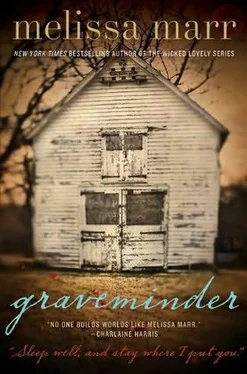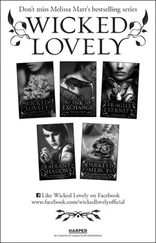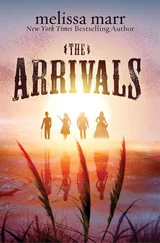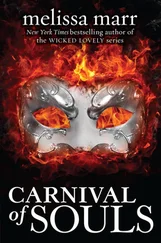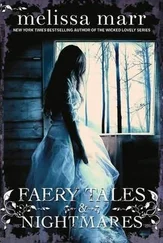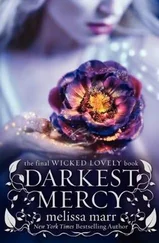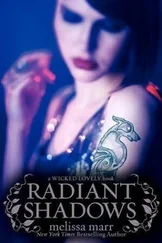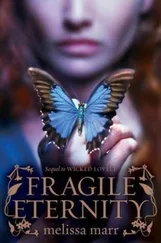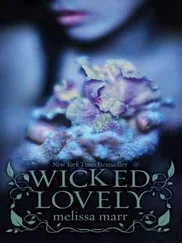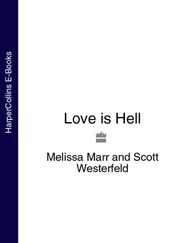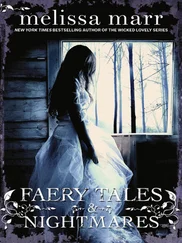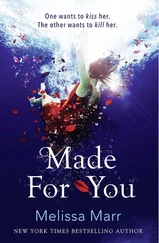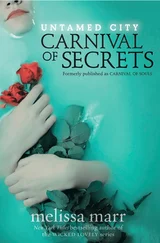Later, she’d tell him about Charles’ story, but right now, she wanted to set it all aside. The peace she’d sought was hers. She’d felt it today when she rescued the dead, when she saw Daisha off to her new life, and when she’d seen Cissy go to her just end. This was her life, and Byron was meant to be in it.
He always was.
She enjoyed the connection to him, to her town, as they drove. When he stopped at the house, she got off the bike and took off her helmet. “I love you, you know.”
“What?” He stood, holding his helmet.
“I love you,” she repeated. “That doesn’t mean I’m proposing or offering to have kids. I’m not, but I do love you.”
He cupped her cheek with his free hand. His thumb stroked her skin. “Not sure I suggested marriage or kids.”
“Good.” She smiled. “I figured it’s about time I admit the love thing. I’m not sure—”
He kissed her gently before telling her, “I’m not sure I’ll ever be ready for kids. This ... what we are ... I don’t want ...”
“I know.” She thought about the letter Maylene had written, about Cissy’s envy, about Ella’s death. “Me either.”
She took his hand in hers and they went inside. Together they went upstairs and turned out the lights.
REBEKKAH AWOKE AS THE SUN WAS RISING AND MADE HER WAY TO THE FIRST cemetery on her list. She knelt before the stone and planted a small yellow rosebush. Then she brushed the soil from her hands and pulled a small bottle from her bag.
“I’m here now, Maylene,” she whispered. She stroked the top of the stone. “Do you remember when we planted our first garden together? Peas, onions, and rhubarb.” She paused at the memory, letting the sweetness she remembered fill her. “You, me, and Ella ... I miss her. I still miss her. And Jimmy. And you ...”
Rebekkah’s tears rolled down her cheeks. There was no way to erase the ache inside of her, but she took comfort in knowing that Maylene had gone on to another life in another world, where she could be with the rest of her family.
She made the rest of her rounds through the cemetery, stopping to clear debris from stones, pour a bit of drink onto soil, and say her words. It was the first of the cemeteries on her daily agenda, but she didn’t shortchange any of the residents on her list.
She glanced at the brightening sky and tucked her flask into her satchel when she saw him. His jeans were faded and frayed; the backpack he’d slung over his shoulder looked like it had seen better days; and the stubble on his face made it clear that he’d been in a hurry.
“You’re up early,” she said when he reached her side.
Byron kissed her, and then said, “Good morning.”
“Hi.” She wrapped her arms around him and enjoyed being held for a moment. “I figured I’d get to work so we could try going out or ... I mean, I thought ...”
He grinned. “So you wanted to free up your evening for me?”
“Yeah.” She poked him in the chest. “Don’t think that a few rides on the bike or trips to exotic locales with dead folk count as dates. I want the standard stuff, too. Cooking—”
“I planned to cook breakfast, but you weren’t there.” He didn’t add that he panicked when he found her gone, but they’d been down this route enough times that she knew he had.
“I left a note on the table,” she said.
He looked sheepish. “Sure. I know—”
“You didn’t see it.”
“I grabbed a few things and came to find you and ...” His words faded and he took her hands. “You have a habit of running.”
“I had a habit of running,” she corrected.
“You sure?”
“I am,” she admitted. “I love you, and you seem crazy enough to love me back, so ... if you still want t—”
He silenced her with a kiss.
Being with Byron had always been right, so much so that she’d never been able to consider anyone else for more than a moment, but admitting the truth of this made her feel the familiar ease as well as a less familiar happiness.
“Okay, then”—she stepped back—“let me get back to work.”
He frowned. “Is there anything that says I can’t come along? Help?”
“No.” She stared at him. “You want to spend the day wandering graveyards?”
“Is that where you’ll be?”
“Well, yes.”
“Unless I get a call, I don’t see why I’d need—or want —to be anywhere else.” He laced his fingers with hers. “I’m not going to go to work with you every day, Bek, but once in a while ...” He shrugged.
For a moment, Rebekkah paused, bracing herself for the fear of being trapped, the anxiety of too many threads of entanglement, but the usual panic was absent. For the first time since she’d left Claysville, she knew where she belonged.
Here. With Byron. Minding the dead.
R EBEKKAH OPENED ANOTHER OF THE JOURnals that she’d recovered from Cissy’s house and began to read.
William tells me he saw Alicia again. It’s foolish of me to feel envy, but I do. Graveminders cannot see their own, and I’ve accepted that. As I’ve come to terms with Charles’ games, I’ve realized that some of the rules are for our own protection—not just his. That doesn’t mean I like them. Sometimes I weary of secrets. I grow weary of feeling so alone. It’s tempting to go there, to stay and let myself slip into that world, to let myself see if the vibrancy of the dead remains when I too am one of them.
I can’t.
Yet I stay here knowing that my family has been devastated by the burden that Alicia passed on to my mother. I stay here knowing that she will not answer my questions if I have William carry them to her. I tried sending a letter. It vanished when she touched the envelope.
Does it get easier? Does knowing that you will pass this one to one you love ever not hurt? I have questions. I do what I do. I’m lived my life for this town, and I do so knowing what I do is for the love of my town and my family—even as I know that it will also destroy them. The child I love best, the one I find strongest, will also be the one I contract.
Sometimes I loathe Charles. I loathe Alicia. I loathe my own mother. Yet I will do as I must, and I will hope that my granddaughter will forgive me.
Rebekkah understood that she could’ve written that entry, that she could’ve written so many of the entries in the journals that her grandmother had kept for her. These were the answers that she had been seeking. She was not alone. Even as those who had written these words were gone, they were still here for her in their absence.
Instead of continuing reading the next entry, she turned to the end of the most recent journal and began to write: “Daisha was the first dead girl I met ...”
I AM GRATEFUL TO MY DYNAMIC PUBLISHERS, Lisa Gallagher (yes, the bar is named for you) for acquiring the book and Liate Stehlik for support along the way; to my lovely agents, Merrilee Heifetz and Sally Wilcox, for crazy enthusiasm when I was drowning in doubt; and to my editors, Jennifer Brehl for early insights (especially on Charlie’s attire and the tavern) and Kate Nintzel for kick-ass editorial notes, unflagging energy, and an amazing attitude.
I couldn’t have written this book without the aid of “Undertaker Todd” (W. Todd Harra), who answered my incessant questions about the “dismal trade,” let me read his collection of mortuary stories, and read Graveminder to assure that I had the details and terminology right. Thank you for everything. (Note: Any craft-related errors are obviously mine. Todd did a great job educating me, but I’m sure I’m not always the best student.)
Читать дальше
Конец ознакомительного отрывка
Купить книгу
